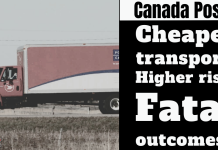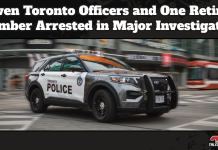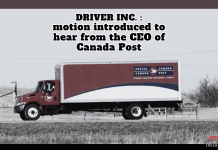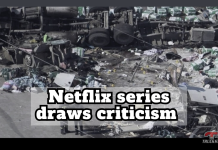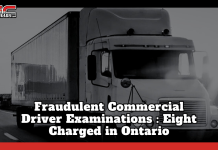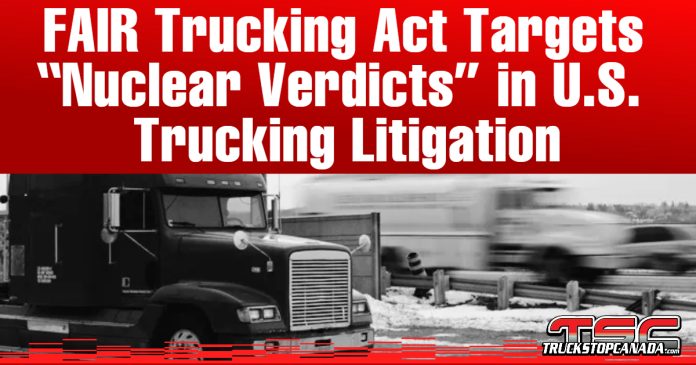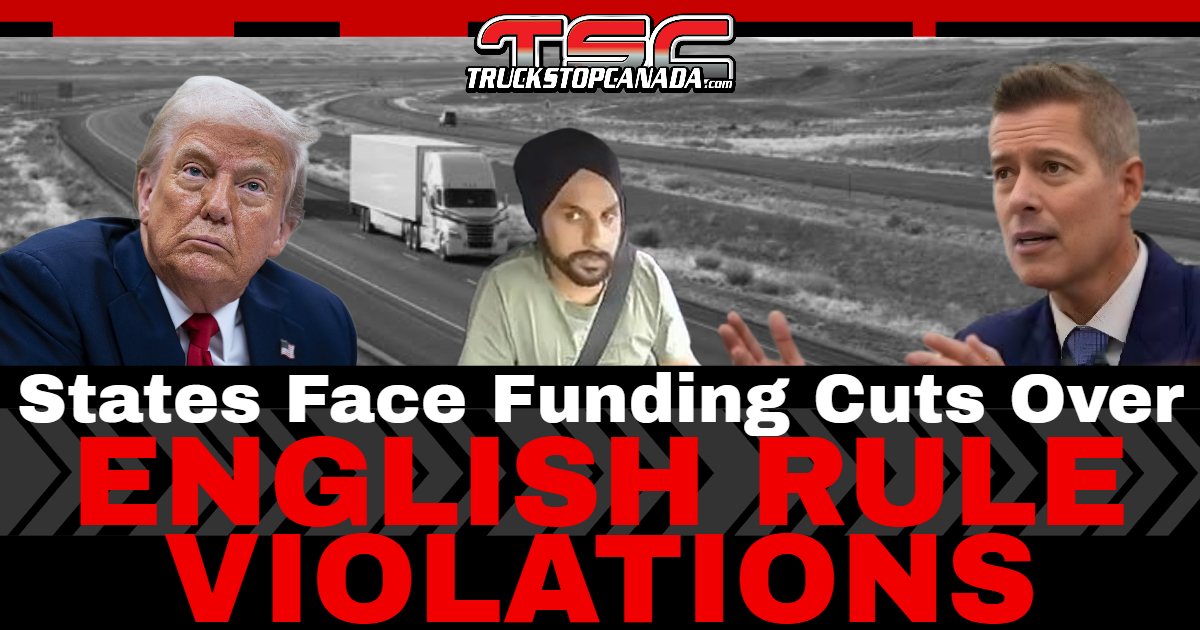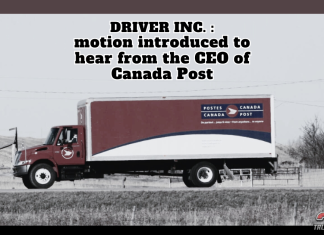A new bill before the U.S. Congress, the FAIR Trucking Act (H.R. 5268), seeks to rein in runaway jury awards in the trucking industry.
Introduced by Representative Ashley Hinson of Iowa, the legislation would require that lawsuits involving more than $5 million in damages and parties from different states be heard in federal courts.
The goal is to curb “venue shopping,” where plaintiffs select jurisdictions known for favoring large settlements. While the measure aims to restore balance, critics argue it does not go far enough to address the deeper structural flaws of a legal system increasingly criticized for encouraging excessive judgments.
At the heart of the issue are so-called “nuclear verdicts,” court awards exceeding $10 million that have multiplied in recent years against trucking companies. These verdicts, industry observers note, often hinge on appeals to jurors’ emotions rather than a balanced review of evidence. Attorneys in such cases frequently amplify the human toll of accidents to maximize damages, regardless of the actual level of fault. For trucking operators, the financial consequences can be devastating, forcing many to close or consolidate while driving up insurance costs across the sector.
Fueling this trend is the rise of litigation financing. Private investment firms fund lawsuits in exchange for a percentage of potential awards, creating a financial incentive for plaintiffs to reject reasonable settlements and pursue outsized judgments. The use of expert witnesses citing federal regulations—sometimes in contexts where they may not apply—adds further pressure on juries to assign blame.
Trucking companies have responded by adopting “compliance-plus” strategies, exceeding regulatory requirements to demonstrate exemplary safety practices. Yet even these efforts have not shielded them entirely from a system vulnerable to emotional and financial manipulation. Fraudulent cases, such as the Louisiana scheme involving staged accidents, lawyers, and medical professionals, highlight the extent of the problem and underscore the importance of tools like dashcams to protect carriers in court.
The impact on the trucking industry is profound. Nuclear verdicts have driven insurance premiums sharply upward, in some cases doubling or tripling for small carriers. This has fueled market consolidation and discouraged competition. In 2023 alone, 27 jury awards in the U.S. exceeded $100 million, a figure insurers link to “social inflation” that inflates claims costs by roughly 7% annually. Canadian carriers operating across the border have also been hit by massive judgments, leading insurers to raise premiums domestically and demand higher coverage limits. The ripple effect extends beyond financial strain, damaging public perceptions of trucking companies and complicating relationships with shippers and insurers.
While the FAIR Trucking Act could curtail venue shopping, industry stakeholders caution that it falls short of addressing the root causes behind nuclear verdicts. They argue that genuine reform requires transparency around litigation funding, stricter limits on punitive damages, and clearer standards for expert testimony. Without these safeguards, the trucking sector is likely to remain exposed to disproportionate legal risks that undermine both its stability and its role in sustaining North America’s supply chain.

